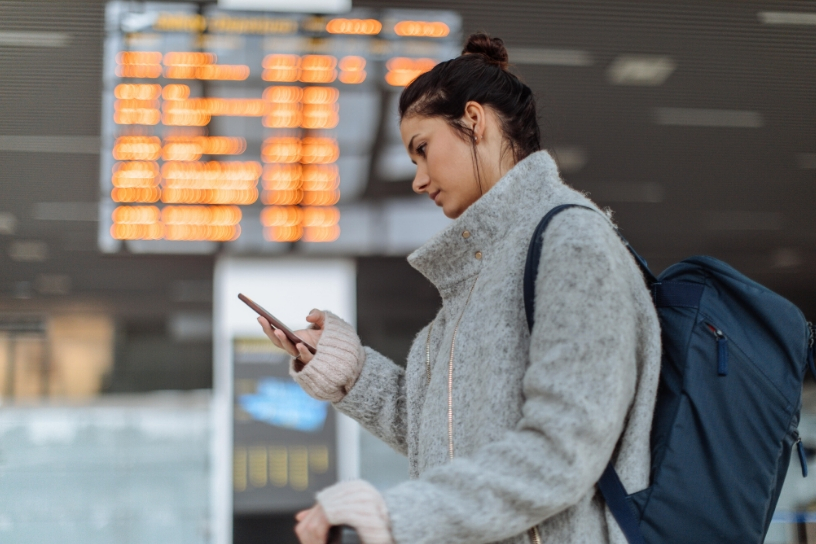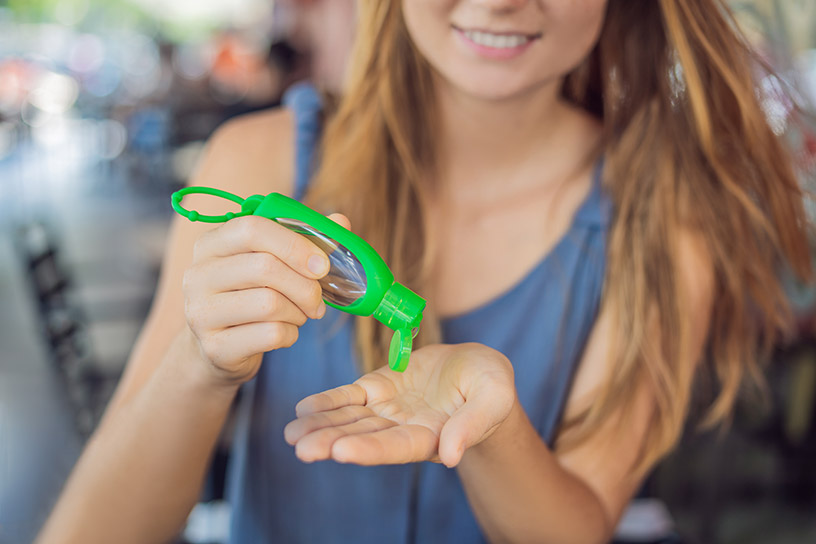COVID-19: What You Need to Know About Coronavirus
COVID-19 is a new novel coronavirus that initially affected people in the Hubei Province of China but subsequently spread widely throughout that country and then outside of China, primarily by outbound travellers.
More than 60 countries have now reported cases, including through local transmission of COVID-19. As the epidemic evolves in each affected country, it is expected that many areas may detect local person-to-person transmission of COVID-19 in addition to imported cases from known high-risk countries.
For travellers, it is now more important than ever to understand how to avoid respiratory infections like coronavirus.
Here, Cover-More’s Chief Medical Officer Dr Stephen Rashford details what you need to know...
Skip ahead to find:
- What is COVID-19?
- What are the symptoms of COVID-19?
- How is COVID-19 spread?
- How can I avoid or limit my exposure to COVID-19?
- Is it safe to travel with the risk of COVID-19?
- How can I prepare for an upcoming trip?
- What do I do if I return to New Zealand and feel sick?
- Where can I find travel alerts and updates about COVID-19?

What is COVID-19?
COVID-19 is the official name of the newly discovered strain of the coronavirus family. On 11 February 2020, the World Health Organization (WHO) announced that COVID-19 would be the official name for this particular strain, as the term ‘coronavirus’ is actually the name of a large family of viruses, not the virus itself.
COVID-19 is believed to have originated in animals, similar to other viruses that have emerged in previous years. So far, it appears to be transmitted more easily than related conditions. As this is a new virus within humans, the concern is there is no level of community immunity.
What are the symptoms of coronavirus?
In the majority of cases, symptoms have been mild with most resembling the common cold and when more significant, the flu. Symptoms of the infection usually start within 14 days of exposure.
Symptoms usually include:
- shortness of breath and breathing difficulties
- fever and heightened temperature
- persistent cough
- runny nose
However, some cases do start with non-specific illness symptoms. Therefore, any individual who becomes unwell within 14 days of returning from overseas should have COVID-19 assessed as a possible cause by their doctor.
In severe cases, the condition can result in pneumonia, body organ failure and even death.
Health authorities suspect it is possible for this strain of coronavirus to spread before symptoms are present, making it more difficult to contain the disease.
How is COVID-19 spread?
COVID-19 appears to be spreading via people in close proximity to an infected person, which is similar to the way other respiratory illnesses are spread.
When an infected patient coughs or sneezes, respiratory droplets (usually from mucus or saliva) are generated and dispersed into the air. People who come into direct contact with these droplets—for example from contaminated surfaces—are at risk of being infected with COVID-19. The virus can be infective on hard surfaces for up to 48 hours. There remains a possibility of airborne spread as well, although this may occur only in certain circumstances. New information about COVID-19 is constantly being assessed, which may change our understanding and recommendations regarding risks of contraction, isolation requirements and treatment.
How can I avoid or limit my exposure to COVID-19?
At the moment, there is no vaccination against COVID-19. The best way to protect yourself from COVID-19 and other respiratory infections is to practice good hygiene by:
- avoiding or limiting contact with people displaying symptoms or those who are suffering from acute respiratory infections
- washing your hands frequently with soap and water or use alcohol-based hand sanitiser, especially after direct contact with ill people or their environment
- covering your nose and mouth when coughing or sneezing with disposable tissues or clothing
- avoiding touching your eyes, nose and mouth as your hands could be contaminated
- not sharing unwashed bedding, glasses, and other utensils with anyone who is ill

Is it safe to travel with the risk of COVID-19?
The New Zealand Government is now urging citizens not to travel to mainland China or Iran, where there has been a significant, continuing outbreak of the virus. The New Zealand Government is also cautioning about travel to some parts of South Korea and Italy.
Advice regarding other parts of the world will change, so check safetravel.govt.nz alerts regularly for information about your destination/s.
Travel to parts of the world where the virus is most prevalent is unwise and could result in a period of quarantine if you present with symptoms of the virus. However, there is no specific danger currently identified to travel elsewhere.
However, this can change quickly, so it is important to stay informed with the latest advice issued by the New Zealand Government on safetravel.govt.nz.
How can I prepare for an upcoming trip?
COVID-19 may not affect your travel plans, but here are four ways you can prepare for an upcoming trip.
#1. Check government websites for up-to-date travel advice about your destination.
#2. Talk to your doctor, especially if you’re travelling with child, are pregnant, or have a weak immune system.
#3. Consult with your travel agent and transport provider for advice about potential service disruptions.
#4. Stay healthy by eating immune-boosting foods and avoid becoming run down.
What do I do if I return to New Zealand and feel sick?
If you have a fever, cough and difficulty breathing, seek medical care early. Respiratory symptoms with a fever can have several causes, and depending on your personal travel history and circumstances, COVID-19 could be one of them.
Tell your health care provider if you have travelled to China or other identified higher risk countries (check safetravel.govt.nz) where coronavirus has been reported, or if you have been in close contact with someone who has been diagnosed with COVID-19.
If possible, phone your doctor or local hospital before you present to them in person, as this will allow the medical staff to make any appropriate preparations to help protect others ahead of your arrival.
Where can I find travel alerts and updates about COVID-19?
Stay up-to-date with the latest information about COVID-19 by visiting trusted sites, such as safetravel.govt.nz and the World Health Organization.
For the latest claims advice from the Cover-More team, please visit our alerts page.
Sources:
Material on this website is provided for informational purposes only. It is general information and discussion about medicine, health and related subjects may not apply to you as an individual, and is not a substitute for your own doctor’s medical care or advice. The words and other content provided on this website, and in any linked materials, are not intended and should not be construed as medical advice. If the reader or any other person has a medical concern, they should consult with an appropriately licensed physician or other health care worker. Nothing contained on the website is intended to establish a physician-patient relationship, to replace the services of a trained physician or health care professional, or otherwise to be a substitute for professional medical advice, diagnosis, or treatment. The views and opinions expressed on this website have no relation to those of any academic, hospital, practice or other institution with which the authors are affiliated. They do not necessarily reflect the opinions of Cover-More Insurance Services Pty Ltd. Never disregard medical advice or delay seeking medical care because of something you have read on or accessed through this website. If you think you may have a medical emergency, call your doctor or emergency services immediately.